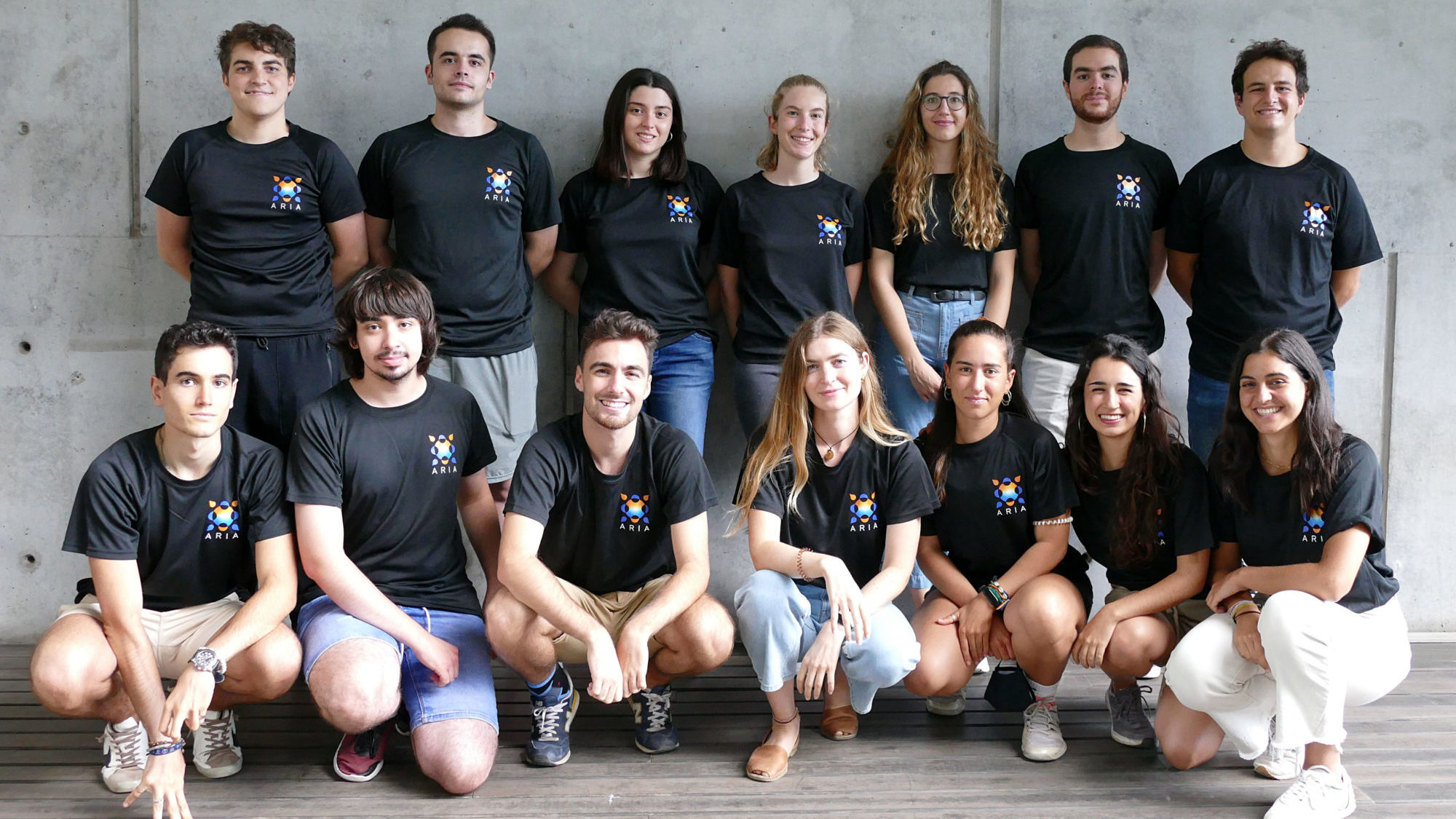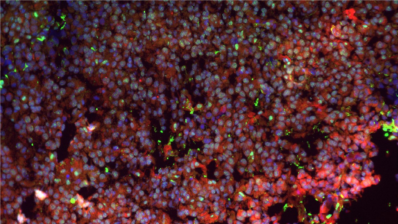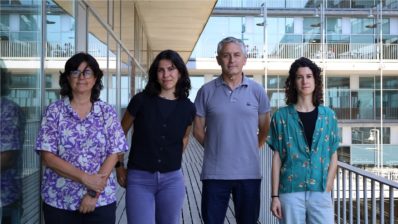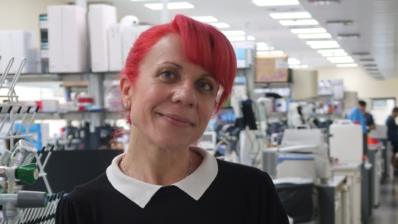A team made up of students from the UPF’s degrees in Biomedical Engineering and Human Biology have developed the ARIA project – Antibiotic Resistance Inference Array -, which they submitted to the international iGEM competition. The main objective of the project is to accelerate and characterise the diagnosis of antibiotic resistant infections, a problem that seriously affects the world and is considered the silent pandemic of this century. To do it, they used two disciplines: synthetic biology and artificial intelligence.
The students that compose the team are: Auba Fuster, Lídia Martínez, Isaac Capallera, Teresa Castaño, Laisa Bonin, Laura Sánchez, Francesc Carandell, Álvaro Martínez, Joel Romero, Marc Borràs, and Loreto Coma. They had the support of some researchers from the Department of Experimental and Health Sciences, Pompeu Fabra University (DCEXS-UPF) – Marc Güell, Javier Macia, Javier Santos, Nastassia Knödlseder, Guillermo Nevot and Sira Mogas – and the Social Council of the UPF, as well as the sponsoring of the small companies Arquicalcul and TASALIA and a crowdfunding campaign.
The UPF iGEM group, which won one of the gold medals in the competition, tells us about its project in this article.
We have achieved a proof of concept for an innovative system that addresses the problem of antibiotic resistance in three steps:
- First, we combined advance algorithms to analyze large amounts of microbe genomic and functional data and define lists of resistance-related markers.
- Then we create a library of biosensors that detect these markers using the novel CRISPR-Cas technology and emit a luminescent signal in the presence of a positive sample. Ideally these markers would be placed on a paper support in order to be able to take a photograph with any device.
- Finally, a multiplatform computer vision application automatically extracts a specific pattern from the set of markers and sends it to an artificial intelligence module, which integrates it with the specific information of the patient to extract the most appropriate countermeasure available.
The ARIA project has been developed within the context of the iGEM: International Genetically Engineered Machine contest, and once the 2021 edition was over, our group obtained very good results, reflected in a gold medal. This recognition indicates the achievement of key objectives at the level of engineering, design, collaboration and connection with society, but also that we went further in our mission in a multidisciplinary and integrated way.
“We are very grateful for the opportunity of participating in the iGEM: it has been a very enriching but at the same time very intense experience, a few months of continuous work to achieve our objectives”
In addition to the great scientific and technical knowledge that we acquired by developing the project, it also allowed us to see the reality of the research world in the academic field and led us into a first experience of working in research.






